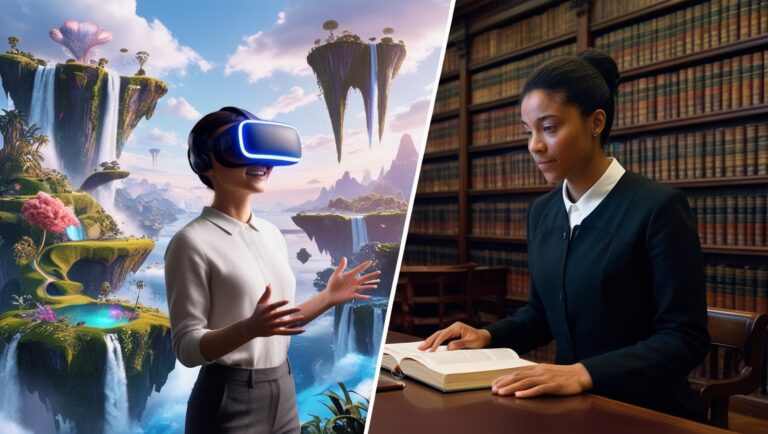Dive into the Dilemma: Mind vs. Matrix
Have you ever dreamt of a world where anything is possible? A world crafted entirely to your desires? Or perhaps you’ve longed for the ultimate shortcut to knowledge, becoming a walking encyclopedia overnight. Well, DilemmaBox.com presents a mind-bending scenario that forces you to choose between these two fantastical realities. Today’s dilemma:
Would You Rather: Live in a completely virtual reality world or have all the knowledge in the world downloaded directly into your brain?
This isn’t a simple choice. One option offers the chance to escape into a tailored paradise, while the other grants you unparalleled intellectual power. Let’s explore the potential joys and burdens of each path before you cast your vote!
- The Allure of the Artificial: Living in a VR Paradise
- Knowledge Overload: Can Your Brain Handle It All?
- Limited by Reality: Is Ignorance Bliss?
- The Power of Potential: Unlocking the Limits of Knowledge
- The Price of Perfection: Is a Flawed Reality More Fulfilling?
- Beyond the Binary: Are There Hidden Costs or Benefits?
The Allure of the Artificial: Living in a VR Paradise
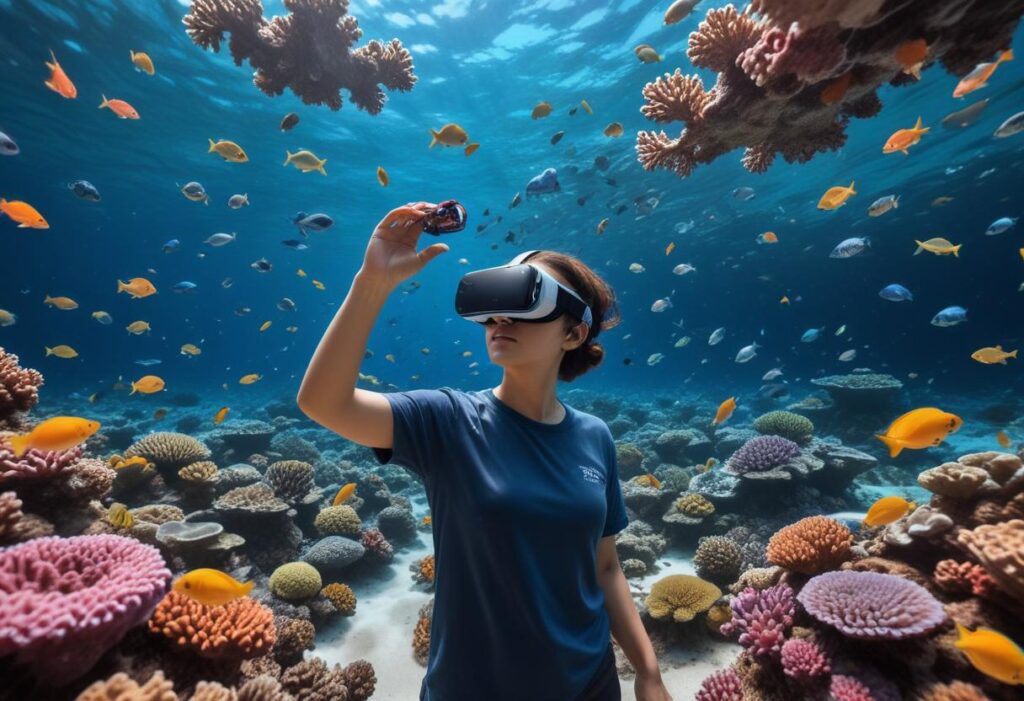
Imagine a world where limitations are a thing of the past. Craving a breathtaking adventure on a distant planet? Done. Yearning to soar through the skies like a mythical creature? No problem. In a completely virtual reality (VR) world, your desires become your reality. This option in today’s dilemma presents an intoxicating escape, a chance to craft your own personalized paradise.
The allure of VR is undeniable. Imagine scaling the majestic peak of Mount Everest without the risk of altitude sickness. Swim with playful dolphins in the crystal-clear waters of the Great Barrier Reef, or witness the awe-inspiring power of a volcanic eruption from a safe distance. VR removes the physical constraints of our world, allowing you to explore any corner of the universe or delve into the fantastical realms of your imagination.
Gone are the mundane aspects of daily life. Imagine waking up to a world bathed in the golden hues of a permanent sunrise, or strolling through a forest where the air is perpetually crisp and the birdsong never ceases. You could design your surroundings down to the finest detail, creating a haven that perfectly aligns with your aesthetic preferences.
But the beauty goes beyond aesthetics. Loneliness can be a crippling burden in our reality. VR offers the potential for constant companionship. You could design virtual friends and companions, fostering relationships that cater to your specific needs and desires.
Furthermore, VR could be a playground for creativity. Imagine composing a symphony with the guidance of the greatest musical masters of history, or choreographing a dance routine alongside the legendary Michael Jackson. VR could bridge the gap between imagination and execution, fostering an environment where artistic expression finds no bounds.
However, the allure of VR comes with its own set of questions. Would a life lived entirely within a simulated reality be truly fulfilling? Wouldn’t the constant sense of control and perfection eventually become monotonous? These are questions you must consider when contemplating the escape offered by VR.
The human experience thrives on challenges and overcoming obstacles. The satisfaction of achieving a difficult goal, the joy of learning a new skill, these are all aspects of life that could be drastically altered in a VR world. Wouldn’t the absence of struggle diminish the sweetness of success?
Ultimately, the decision to embrace the virtual paradise rests on your individual preferences. Do you crave a life of endless possibilities and perfect control, or do you find value in the grit and determination required to navigate the complexities of our real world? This is just one aspect of the “Would You Rather” dilemma at hand. Stay tuned for further exploration of the challenges and opportunities presented by the other side of the coin – possessing all the world’s knowledge!
Knowledge Overload: Can Your Brain Handle It All?
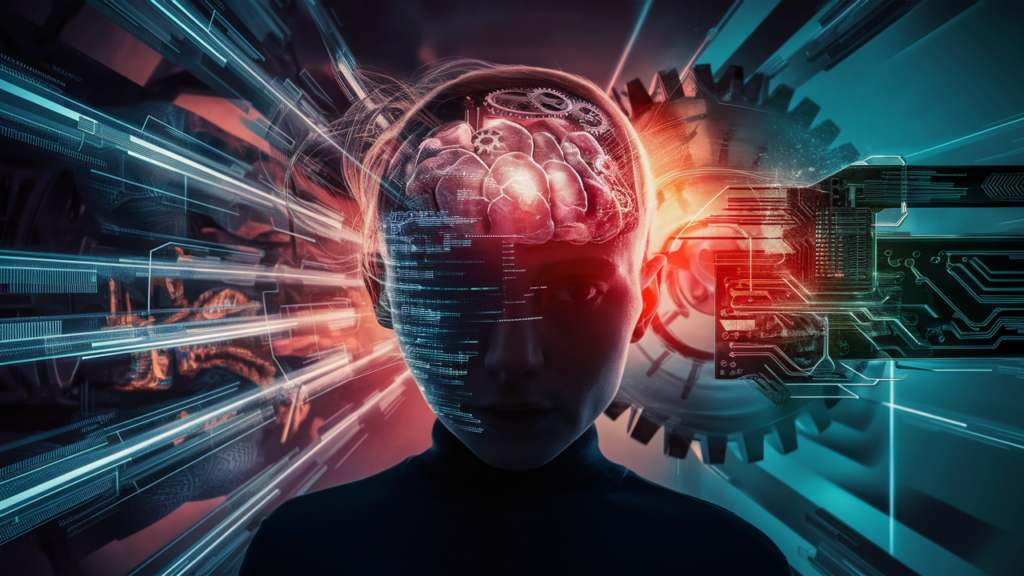
The second option in our dilemma presents a tantalizing proposition: having all the world’s knowledge downloaded directly into your brain. Imagine the possibilities – becoming a master of every field imaginable, instantly recalling historical facts with pinpoint accuracy, or possessing the problem-solving prowess of a genius. This scenario holds immense appeal, granting you the intellectual power to tackle any challenge and potentially revolutionize the world.
However, before diving headfirst into this intellectual ocean, it’s crucial to consider the potential pitfalls of information overload. Our brains are remarkable organs, capable of storing and processing vast amounts of information. However, they have limitations. Just like a computer with insufficient memory, an overloaded brain can become sluggish and inefficient.
The sheer volume of knowledge available could create a constant mental cacophony. Imagine having every historical event, scientific discovery, and philosophical debate readily accessible at all times. Focusing on any single task could become a herculean effort, as your mind struggles to silence the barrage of information bombarding it.
Furthermore, the quality of information becomes a concern. The internet, a vast repository of knowledge, is also rife with misinformation and conflicting theories. Without the ability to critically evaluate the information downloaded into your brain, you risk becoming a walking encyclopedia of inaccuracies.
The constant influx of new knowledge could also disrupt your ability to learn and grow. Curiosity and the joy of discovery are essential parts of the human experience. With instant access to all answers, would you lose the motivation to explore and question? Would critical thinking skills become rusty from disuse?
The potential for a distorted sense of self is another factor to consider. Possessing vast knowledge could lead to feelings of superiority or arrogance. Social interactions could become strained as you struggle to find common ground with those operating on a lower intellectual level.
However, the challenges don’t negate the potential benefits. Imagine the ability to solve complex problems that have plagued humanity for centuries. Medical breakthroughs, advancements in technology, and solutions to global issues could all become more attainable with a collective mind brimming with knowledge.
Furthermore, having all the world’s knowledge doesn’t necessarily equate to information overload. The downloaded information could be structured and categorized, making specific details readily accessible without overwhelming the entire brain.
The key lies in control. Just as we cultivate healthy habits to manage our physical health, we would need to develop strategies to manage the influx of knowledge. Learning techniques for filtering information, prioritizing what’s important, and compartmentalizing knowledge could be crucial in navigating this intellectual bounty.
Ultimately, the decision of whether your brain can handle all the world’s knowledge comes down to your learning style and personality. Are you comfortable navigating a sea of information, or do you crave a more streamlined approach to knowledge acquisition? The answer will guide your choice in this intriguing dilemma.
Limited by Reality: Is Ignorance Bliss?

The “Would You Rather” dilemma forces us to confront the limitations of human knowledge. Living in a VR paradise offers escape, while possessing all knowledge presents immense power. However, both options raise a critical question: is ignorance truly bliss? Is there a value in the limitations of our current reality?
There’s a certain charm in blissful ignorance. We often avoid unpleasant truths, choosing to focus on the positive aspects of life. This selective awareness can provide a buffer against negativity and anxiety. Imagine knowing every potential danger lurking around the corner, every disease that could potentially afflict you. Wouldn’t the constant awareness of life’s impermanence dampen your enjoyment of the present moment?
Furthermore, limitations can foster creativity. The human mind thrives on finding solutions within constraints. Without limitations, would we be as driven to invent, explore, and push boundaries? Imagine a world where every question has a readily available answer. Wouldn’t the thrill of discovery and the satisfaction of problem-solving be significantly diminished?
The limitations of our knowledge also foster a sense of wonder and awe. The vastness of the universe, the intricacies of the natural world, and the mysteries of human consciousness all inspire a sense of humility and curiosity. Would possessing all the answers extinguish this sense of wonder, replacing it with a sterile, factual understanding of the world?
However, ignorance can also be a source of suffering. Lack of knowledge can lead to poor decision-making, missed opportunities, and an inability to navigate the complexities of the world. Imagine being unaware of the dangers of pollution, the importance of healthy habits, or the potential for social manipulation. Wouldn’t ignorance in such cases leave you vulnerable and powerless?
Furthermore, limitations can breed fear and prejudice. The unknown is often demonized, leading to misunderstandings and conflict. Imagine a world where scientific advancements dispelled myths and superstitions, promoting understanding and tolerance. Wouldn’t a broader knowledge base foster a more peaceful and cooperative society?
Ultimately, the value of limitations depends on the type of knowledge we lack. Being unaware of the beauty of a sunset is a different kind of limitation than being ignorant of the causes of climate change. The key lies in striking a balance.
Perhaps the ideal scenario isn’t complete ignorance or omniscience, but rather a continuous process of learning and discovery. By embracing the limitations of our knowledge while actively seeking to expand it, we can cultivate a sense of wonder alongside the power of understanding. This approach allows us to appreciate the beauty of the world around us while possessing the tools to navigate its complexities.
The “Would You Rather” dilemma doesn’t force us to choose between complete ignorance and absolute knowledge. There’s a spectrum of possibilities in between, and finding the right balance is the key to a fulfilling and meaningful existence.
The Power of Potential: Unlocking the Limits of Knowledge
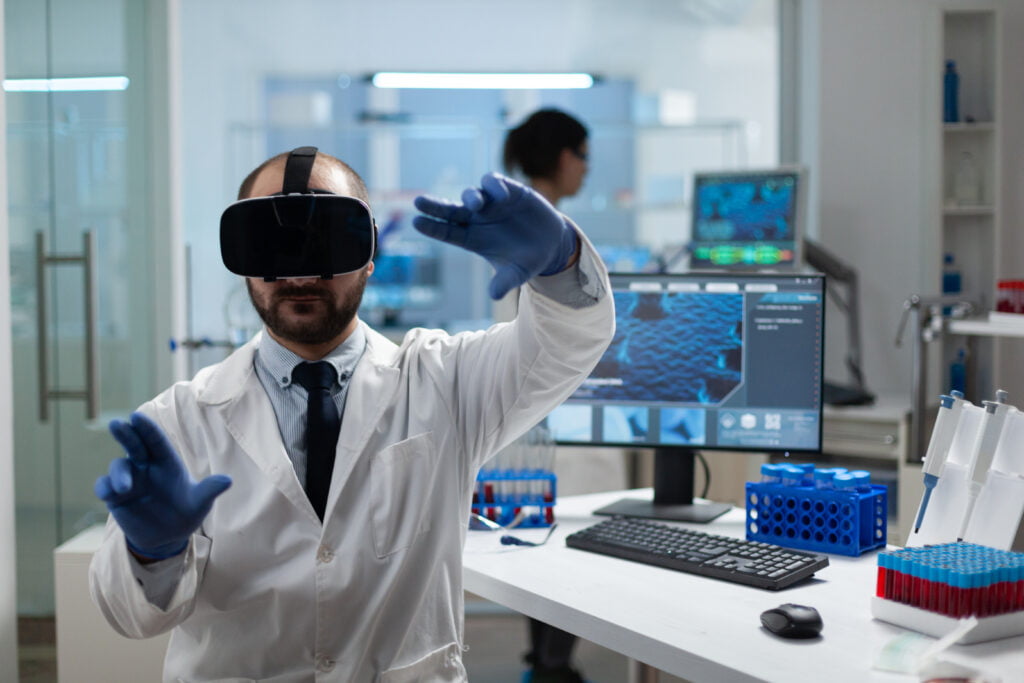
Imagine a world where the pursuit of knowledge isn’t limited by textbooks or years of dedicated study. Imagine a world where the entirety of human understanding, from the intricacies of quantum mechanics to the nuances of ancient philosophy, is readily accessible at your fingertips (or rather, within your mind). This is the tantalizing proposition offered by the “Would You Rather” dilemma: possessing all the world’s knowledge downloaded directly into your brain.
This scenario transcends the mere ability to answer trivia questions or recite historical facts. It unlocks the potential for a true revolution in human understanding. Scientific breakthroughs that have been stalled for decades could find swift solutions with a collective mind brimming with knowledge across all disciplines. Imagine tackling complex problems like climate change or global healthcare with the combined wisdom of every scientific genius throughout history.
Furthermore, the potential for individual growth is staggering. Imagine mastering a new skill in a fraction of the time it currently takes. An aspiring musician could instantly grasp the intricacies of music theory and composition, while a budding artist could draw upon the techniques of the masters throughout history. The democratization of knowledge would foster a generation of polymaths, individuals with expertise in a wide range of fields.
The benefits extend beyond individual pursuits. Imagine fostering a society where informed decision-making becomes the norm. Political debates would be grounded in fact rather than fueled by half-truths and misinformation. Social and economic policies could be crafted with a deep understanding of their historical and scientific ramifications.
The power of knowledge extends beyond problem-solving. Imagine a world where artistic expression reaches new heights, fueled by a deeper understanding of human emotions and history. Imagine fostering a deeper appreciation for the natural world through a comprehensive understanding of its intricate systems and interconnectedness.
However, the path to a knowledge-filled utopia isn’t without its challenges. The sheer volume of information could be overwhelming, leading to a sense of information overload and hindering the ability to focus and think critically. Developing strategies for filtering and prioritizing knowledge would be crucial in navigating this intellectual sea.
Furthermore, the potential for misuse cannot be ignored. Knowledge in the wrong hands can be dangerous. Imagine malicious actors wielding scientific advancements for destructive purposes. Safeguarding this newfound knowledge and ensuring its responsible application would be paramount.
Ultimately, the potential of possessing all the world’s knowledge is undeniable. It holds the key to unlocking a brighter future for humanity. Whether this power leads to a utopia or a dystopia depends on how we choose to wield it.
The “Would You Rather” dilemma doesn’t present a simple choice. It forces us to confront the challenges and opportunities that come with wielding immense intellectual power. The decision requires a careful consideration of our values, our capacity for critical thinking, and our commitment to using knowledge for the betterment of humanity.
The Price of Perfection: Is a Flawed Reality More Fulfilling?

Both options in our “Would You Rather” dilemma present alluring possibilities – escaping into a perfectly tailored VR world or becoming a walking encyclopedia. However, both options share a common thread: the pursuit of a near-perfect reality. This begs the question – is a flawless existence truly desirable? Could the imperfections and challenges of our current reality be the very ingredients that foster growth and fulfillment?
Imagine a life devoid of struggle and hardship. In a VR world, you could curate your experiences, erasing any potential for discomfort or disappointment. Yet, wouldn’t the absence of challenge also diminish the sweetness of success? Overcoming obstacles, learning from mistakes, and persevering through difficulties are all integral parts of the human experience. Without them, wouldn’t life lack a sense of purpose and accomplishment?
Furthermore, a flaw-free reality could stifle creativity. Problem-solving skills are honed by confronting challenges and devising solutions. Without limitations and the need to innovate, wouldn’t artistic expression become stagnant and uninspired? The human spirit thrives on grappling with the complexities of the world, and a perfectly designed existence could stifle this inherent drive to create and evolve.
The imperfections of reality also foster compassion and empathy. Witnessing hardship in others allows us to connect with their struggles on a deeper level. Imagine a world where everyone possesses perfect health, wealth, and happiness. Wouldn’t the absence of shared struggle erode our capacity for empathy and connection? The experience of overcoming challenges together is what binds us as a community.
The potential for boredom is another factor to consider. A VR world could offer endless novelty, but wouldn’t the continuous stream of curated experiences eventually lose its luster? The unexpected twists and turns of reality, the surprise encounters and chance discoveries, all add a layer of richness and intrigue to life. Wouldn’t a perfectly predictable existence become monotonous over time?
However, the flaws of reality shouldn’t be romanticized. Disease, poverty, and natural disasters are real sources of suffering, and the allure of a pain-free existence is undeniable. Imagine a world where advancements in VR technology create immersive experiences that alleviate physical and emotional pain. Wouldn’t this offer a valuable escape for those facing unimaginable hardships?
Furthermore, the pursuit of perfection shouldn’t be mistaken for the pursuit of progress. Imagine a world where scientific advancements are driven by the need to solve real-world problems. Wouldn’t the limitations and challenges of our current reality be the very catalysts for innovation and positive change?
Ultimately, the value of a “perfect” reality hinges on what we define as perfection. A world without flaws might be a world devoid of growth, empathy, and the unexpected joy of discovery. Perhaps the ideal scenario lies not in eliminating flaws, but in harnessing technology and knowledge to create a world where we can navigate its challenges and celebrate its inherent imperfections.
This “Would You Rather” dilemma doesn’t present a definitive answer. It invites us to re-evaluate our relationship with our flawed reality, acknowledging its hardships while recognizing the opportunities for growth and fulfillment it offers. The choice ultimately lies in what kind of existence we find most meaningful: a curated utopia or a journey of discovery filled with all the beauty and messiness of life as we know it.
Beyond the Binary: Are There Hidden Costs or Benefits?
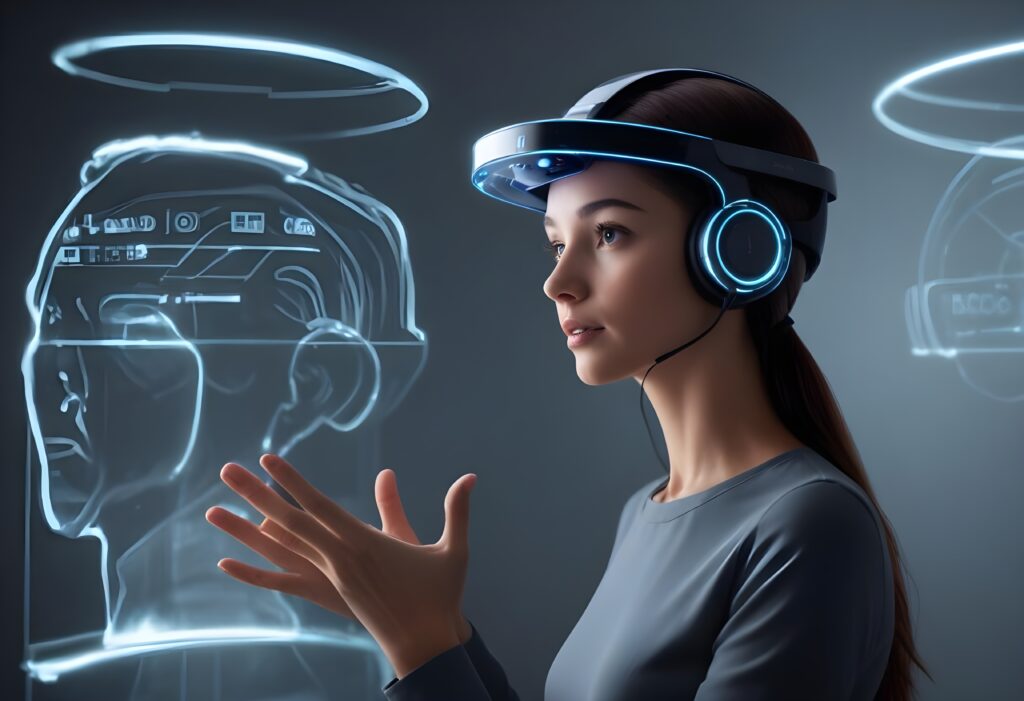
The “Would You Rather” dilemma at hand presents two seemingly contrasting options: escaping into a completely virtual reality world or possessing all the world’s knowledge downloaded directly into your brain. However, when we delve deeper, we see these options may not be so clear-cut. Perhaps the true answer lies somewhere in between, or even beyond the binary presented. Let’s explore the potential hidden costs and benefits that lie beneath the surface of each choice.
The Hidden Costs of VR Paradise
While VR offers the allure of endless possibility, it might come at the expense of neglecting our physical and social needs. Living entirely within a virtual realm could lead to a decline in physical health and a disconnect from the real world. Furthermore, the constant dopamine rush of a curated reality could desensitize us to the subtler joys of real-world experiences.
The Hidden Benefits of VR Paradise
VR could act as a powerful tool for education and exploration. Imagine immersing yourself in historical events, exploring the depths of the ocean, or visiting distant planets – all from the comfort of your home. VR could democratize access to experiences once considered impossible, fostering a deeper understanding of the world and sparking a thirst for real-world exploration.
The Hidden Costs of Knowledge Overload
Downloading all the world’s knowledge comes with the risk of information overload and a potential for analysis paralysis. The sheer volume of information could render it difficult to focus or draw meaningful conclusions. Furthermore, uncritical acceptance of downloaded knowledge could stifle intellectual curiosity and independent thought.
The Hidden Benefits of Knowledge Overload
While the sheer amount of information might be overwhelming at first, it could also unlock new avenues for creative problem-solving. Having access to diverse perspectives and historical solutions might allow us to approach challenges with more originality and effectiveness. Additionally, with proper training, the downloaded knowledge could act as a springboard for further exploration, fostering a deeper understanding of specific areas of interest.
Beyond the Binary: A Hybrid Approach
Perhaps the most intriguing path lies beyond the confines of the original dilemma. What if we could leverage the benefits of VR and downloaded knowledge to enhance our lives in the real world? Imagine a VR learning platform that allows you to experience historical events firsthand while simultaneously downloading relevant historical data for deeper analysis.
The Importance of Critical Thinking
Regardless of the path we choose, critical thinking remains paramount. Whether navigating a VR world or processing downloaded knowledge, the ability to analyze information, question assumptions, and draw independent conclusions will be crucial.
The Dilemma as a Catalyst for Change
Ultimately, the “Would You Rather” dilemma is not about choosing a single path, but about sparking a conversation about the future. It compels us to consider the potential benefits and risks of emerging technologies and how we can harness them to create a better future for ourselves and generations to come. Perhaps the most valuable aspect of this dilemma lies not in the answer, but in the questions it raises.
In Conclusion: A Choice for the Future
The “Would You Rather” dilemma of living in a VR paradise or possessing all the world’s knowledge presents a fascinating thought experiment. There’s no easy answer, as each option comes with its own set of enticing possibilities and potential pitfalls. Ultimately, the choice reflects on our values, our relationship with technology, and our vision for the future.
Do we crave the escape and control offered by VR, or the intellectual power and potential for progress that comes with downloaded knowledge? Perhaps the ideal scenario lies somewhere between these two extremes, a future where VR technology enhances our real-world experiences and downloaded information serves as a springboard for further exploration and innovation. The key lies in approaching these advancements with a critical eye, ensuring they serve to enrich our lives rather than replace them.
This dilemma serves as a springboard for important conversations about the future. As technology continues to evolve at a rapid pace, it’s crucial to consider its potential impact on our lives, our communities, and our very humanity. Will technology liberate us or enslave us? The answer depends on the choices we make today.
Here are some additional questions you might have about this thought experiment:
FAQ
- Can VR technology ever truly replicate reality?
Current VR technology offers immersive experiences, but it cannot fully replicate the complexities of the real world, including physical sensations and social interactions. (https://www.appypie.com/virtual-reality-limitations)
- Is it possible to download all the world’s knowledge into a human brain?
The human brain is a complex organ with immense storage capacity, but its limitations are not fully understood. Currently, downloading all the world’s knowledge into a brain is beyond the realm of scientific possibility.
- Are there ethical considerations surrounding VR technology and knowledge augmentation?
Yes, there are significant ethical concerns surrounding both VR and knowledge augmentation. These include issues of addiction, privacy, and the potential for misuse. (https://news.stanford.edu/stories/2022/12/vr-real-impact-study-finds) Further research and open dialogue are essential to ensure these technologies are developed and used responsibly.
Sources:
Virtual Reality (VR):
- Britannica: Virtual reality (https://www.britannica.com/technology/virtual-reality/Living-in-virtual-worlds) – A comprehensive overview of VR technology, its history, and current applications.
- IEEE Spectrum: The Ethics of Virtual Reality (https://ieeexplore.ieee.org/document/8558774) – Explores the ethical considerations surrounding VR, including user addiction, privacy concerns, and the potential impact on social interactions.
- Stanford News: VR’s Real Impact: Study Finds Both Benefits and Downsides (https://news.stanford.edu/stories/2022/12/vr-real-impact-study-finds) – Discusses a recent study on the impact of VR on users, highlighting both positive and negative effects.
Knowledge Augmentation:
- Kurzweil: Are We Headed for Technological Singularity? (https://evolutionnews.org/2023/11/ray-kurzweil-predicts-the-singularity-by-2045/) – Futurist Ray Kurzweil explores the concept of the technological singularity, a hypothetical point in time when human intelligence merges with artificial intelligence.
- Nextbigfuture: Brain-Computer Interface News (https://www.nextbigfuture.com/) – A news website dedicated to advancements in brain-computer interface (BCI) technology, which could potentially be used for knowledge augmentation.
- MIT Technology Review: Can We Enhance Human Intelligence? (https://www.technologyreview.com/) – Examines the potential and challenges of enhancing human intelligence through various approaches.
The Future of Technology:
- World Economic Forum: The Future of Jobs Report 2020 (https://www.weforum.org/publications/the-future-of-jobs-report-2020/) – Explores the impact of technology on jobs and the workforce, highlighting the need for continuous learning and adaptation.
- Pew Research Center: AI, Automation, and the Future of Work (https://www.pewresearch.org/topic/internet-technology/emerging-technology/automation/) – A survey of public attitudes towards artificial intelligence and its potential impact on jobs.
- Future of Humanity Institute: Existential Risk (https://www.fhi.ox.ac.uk/) – Explores potential existential risks associated with future technological advancements.
These sources offer various perspectives and delve deeper into the specific topics of VR, knowledge augmentation, and the future of technology. Let me know if you’d like more information on any particular aspect of this thought experiment.
Also we hope this article has sparked your curiosity and encouraged you to consider the possibilities and challenges of the future. The choice ultimately lies with us – to shape technology in our image, or allow it to shape our reality.

